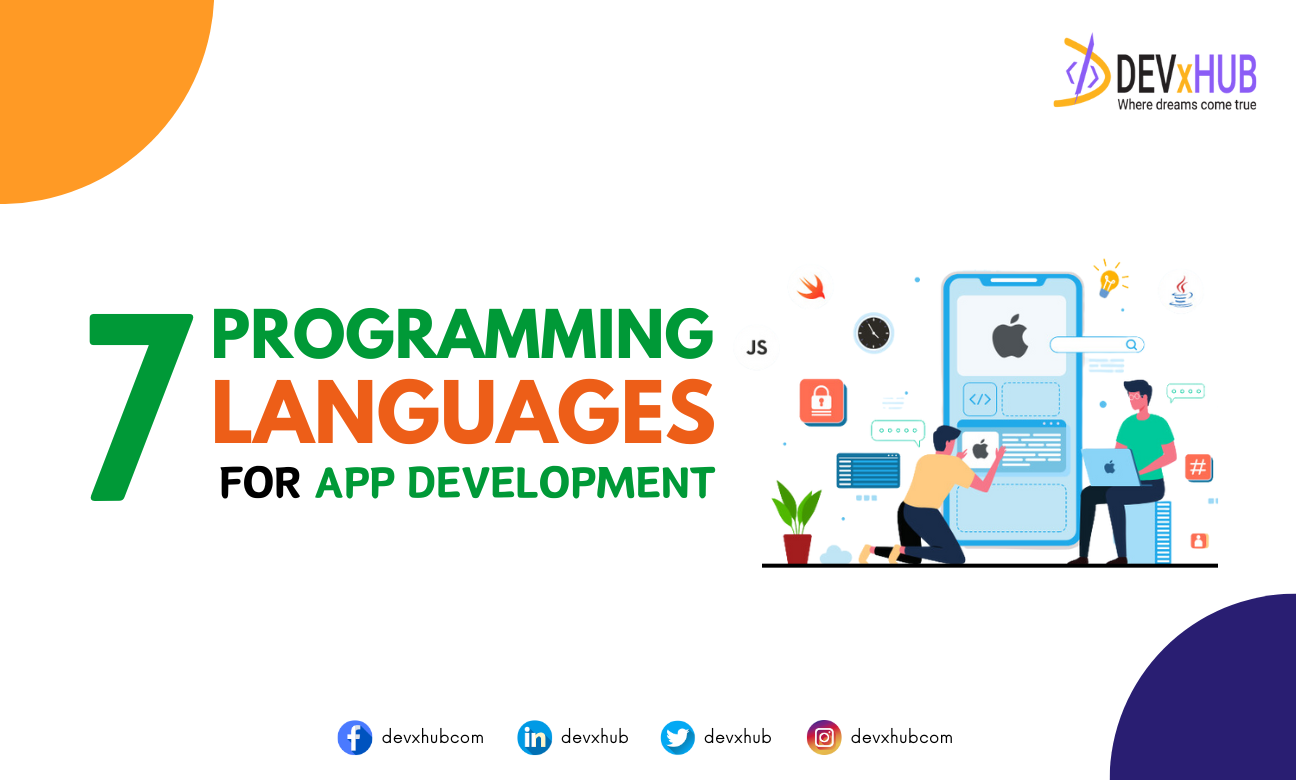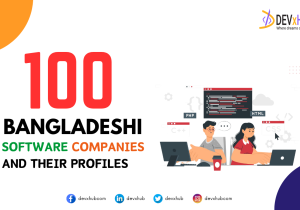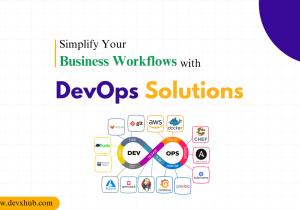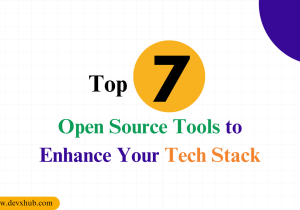Blog - Top 7 Programming Languages for App Development
The mobile app market could reach about $366.34 billion by 2030, growing fast at 23.80% annually. Developers and entrepreneurs often talk about which programming language is best for making apps. It’s crucial to choose the right language because it affects how well your app works and how popular it becomes.
There are many programming languages to choose from, and each has its pros and cons depending on your project. Picking the right one can really boost your app’s performance and success. So, it’s important to know your options before deciding. Let’s first see why picking the right language is so important.
Why Picking the Right Programming Language Matters for Mobile App Development
Choosing the right programming language can greatly affect how well your app performs, how easily it can grow, and how users feel about it. It’s crucial to pick a language that uses resources wisely, makes your app run smoothly, and makes it easier to fix problems. Plus, to reach as many people as possible, your app needs to work well on different devices and platforms.
If you choose the wrong language, it could slow your app down, make it easier for hackers to attack, and make updates harder. To make the best choice, you need to think about things like what your app needs to do, who will use it, and what tools you have for development. Let’s dig into these factors a bit more.
Factors to Consider When Choosing the Best Programming Language for App Development
Selecting the right programming language for developing your app is a crucial decision that can significantly impact its success. Here are several important factors to consider:
- Platform Compatibility:
First and foremost, you need a programming language that plays nicely with the platforms you’re targeting. Whether it’s iOS, Android, or both, your chosen language should seamlessly integrate with the operating systems to ensure smooth performance and functionality across devices.
- Performance:
Consider the performance requirements of your app. Does it need to handle intensive computations, process large amounts of data, or render complex graphics? Languages like C++ and Swift are known for their high performance, while options such as JavaScript and Kotlin have made strides in improving speed.
- Community and Ecosystem:
The strength and size of the language’s community and ecosystem can greatly impact development efficiency. A robust community means access to extensive libraries, frameworks, and resources that can streamline development tasks and provide solutions to common challenges. Additionally, a vibrant community ensures ongoing support and updates, making troubleshooting easier.
- Scalability:
As your app evolves, it’s essential that the chosen language supports scalability. Whether your app starts as a simple project or aims to become a large-scale platform, the language should be capable of handling increased complexity and user demands without requiring a complete overhaul of the codebase.
- Developer Skillset:
Consider the proficiency of your development team with the chosen language. Utilizing a language familiar to your developers can accelerate the development process and reduce the learning curve. However, if a new language is necessary, allocate time and resources for training to ensure proficiency and maintain quality standards.
- Cost and Licensing:
Evaluate the financial implications associated with the programming language. Some languages may require purchasing licenses or investing in specific development tools, impacting your budget allocation. Factor in these costs when making your decision to avoid unexpected expenses down the line.
- Security:
Security is paramount in app development, particularly when handling sensitive user data. Choose a language with built-in security features and a track record of addressing vulnerabilities promptly. Prioritize the protection of user information to maintain trust and compliance with data privacy regulations.
- Longevity and Support:
Opt for a language with a promising future and ongoing support from its developer community. Languages that are actively maintained and regularly updated ensure compatibility with evolving technologies and minimize the risk of encountering compatibility issues or being left unsupported in the future.
Best Programming Languages for Mobile App Development you Should Consider
- Java
- Kotlin
- Swift
- Dart
- Javascript
- Python
- Ruby
Let’s examine what is the best programming language for mobile app development in more detail.
Java for iOS Development
Java stands as the stalwart champion of Android app development, boasting a rich legacy in the mobile app arena. Its extensive history has nurtured a robust developer community and fostered the creation of numerous libraries and frameworks. This ecosystem empowers developers with pre-existing code and tools, streamlining the development journey. Java’s maturity, stability, and scalability render it capable of crafting even the most intricate applications.
However, its age brings along complexities in syntax, especially when juxtaposed with newer languages. For those inclined towards a sleeker approach while targeting Android, Kotlin emerges as a modern alternative.
Platform
Primary language for Android app development
Strengths
- Mature and established language with a thriving developer community.
- Boasts a diverse ecosystem of libraries and frameworks, facilitating rapid development.
- Exhibits scalability, adept at handling sophisticated applications.
Weaknesses
- Complexity in comparison to newer languages.
- Requires separate codebases for iOS apps. (Consider Kotlin for a more succinct alternative.)
Kotlin for Android Development
Kotlin emerges as one of the premier programming languages for mobile app development, rapidly ascending as the favored choice for Android app creation. Addressing the shortcomings of Java, Kotlin presents a cleaner and more concise syntax, enhancing code readability, writability, and maintainability.
Beyond its aesthetic appeal, Kotlin introduces enriched features that streamline development processes and ensure code robustness. One of its standout features is seamless interoperability with Java, allowing developers to seamlessly integrate it into existing Java projects. While the Kotlin developer community continues to expand, its merits as a language for Android development are undeniable, positioning it as a formidable contender.
Platform
Mainly utilized for Android app development
Strengths
- Provides a refined alternative to Java, mitigating its limitations.
- Delivers cleaner syntax and more compact code compared to Java.
- Fully interoperable with Java, enabling gradual adoption within existing projects.
Weaknesses
- The Kotlin community is still evolving in comparison to Java’s.
- Not optimized for iOS development.
Swift for iOS Development
Swift stands at the forefront as the premier choice for iOS development, boasting a cutting-edge approach to programming. With a clean and intuitive syntax, Swift prioritizes developer experience while emphasizing safety, thus reducing errors and crashes, solidifying its position as the optimal language for app development.
Beyond aesthetics, Swift excels in performance, offering developers meticulous control over the latest features of iPhone and iPad devices. Leveraging Swift ensures iOS apps are highly responsive and fully capitalize on Apple’s hardware capabilities. However, it’s important to note that Swift is exclusive to Apple’s ecosystem, limiting its use to iOS development.
Platform
Predominantly utilized for iOS app development (Apple devices)
Strengths
- Offers modern, readable syntax with a focus on safety and clarity.
- Provides exceptional performance and seamless access to native device functionalities.
- Bolstered by a vibrant developer community, offering ample resources and support.
Weaknesses
- Exclusive to iOS development, unsuitable for cross-platform applications.
- Requires familiarity with Apple’s Xcode development environment.
- May encounter challenges when integrating with other IDEs and third-party tools.
Noteworthy Creation: Mitange Inc. – An NFT social media platform, successfully developed using Swift.
Dart (with Flutter) for Cross-Platform Development
Dart, utilized for crafting Flutter apps, is gaining traction in the realm of cross-platform development due to its rapid performance and versatile widget set. Flutter’s Dart framework furnishes developers with a visually native interface, closely mirroring the aesthetics of iOS and Android applications, while delivering seamless animations and robust widgets.
One of Dart’s standout features is Flutter’s employment of a unified codebase for both platforms, simplifying the development process significantly.
Despite its advantages, Dart is a comparatively newer language in the realm of mobile app development, resulting in a smaller developer community compared to stalwarts like Java or JavaScript. Consequently, resource availability might be more limited in some cases.
Platform
Cross-platform development for iOS, Android, and other platforms
Strengths
- Developed by Google, Dart boasts swift performance and fluid animations.
- Offers an extensive array of widgets for crafting native-like user interfaces.
- Facilitates streamlined development through a unified codebase for all platforms.
Weaknesses
- Dart’s developer community is smaller in comparison to JavaScript or Java.
- Considered a relatively nascent language when juxtaposed with more established options.
JavaScript (with React Native) for Cross-Platform Development
JavaScript’s prominence in web development extends to the mobile app realm through frameworks like React Native. This cross-platform approach enables developers to write code once and deploy it on both iOS and Android platforms simultaneously, resulting in substantial time and resource savings. Furthermore, the robust JavaScript developer community provides ample resources and support.
However, there are drawbacks to consider. Despite React Native’s significant maturation, complex applications may encounter performance limitations compared to native development. Additionally, achieving a perfect native look and feel for each platform’s user interface may pose challenges.
Platform
Suitable for cross-platform development on iOS, Android, and other platforms
Strengths
- JavaScript executes solely on the client side, eliminating the need for server connections.
- Offers remarkable speed, enhancing productivity and efficiency in development.
- Features straightforward functions and syntax compared to other client-side languages.
- Enables seamless integration of UI functionality and design through linkage with HTML and CSS.
- Boasts extensive features suitable for both front-end and back-end development.
- Benefits from a large developer community stemming from JavaScript’s popularity in web development.
Weaknesses
- Highly case-sensitive syntaxes can be cumbersome for developers to navigate.
- As JS scripts’ functionality is visible to all, additional security measures are necessary.
- Performance may not match that of native apps in certain scenarios.
- Achieving a perfect native look and feel for the user interface may be challenging.
Notable Creation: MyEventAdvisor – an event booking and live-streaming app, developed using React Native.
Python for Mobile App Development
While not the primary choice for mobile app development, Python’s widespread popularity for other purposes makes it an intriguing option. With its clear and concise syntax resembling natural language, Python is particularly attractive for beginners or projects requiring rapid prototyping. Its simplicity enables developers to focus on core functionalities without grappling with complex code structures.
Backed by a large and active developer community, Python offers a plethora of resources, libraries, and frameworks like Kivy, simplifying mobile app development. These tools bridge Python’s core strengths with the specific demands of app development.
Platform
Cross-platform development (utilizing frameworks like Kivy)
Strengths
- Simplifies development by allowing separate execution of codes, eliminating the complexity of concurrent code management.
- Gentle learning curve and intuitive syntax make Python accessible to beginners.
- Built-in libraries facilitate mobile and gaming app development.
- Code readability and debuggability improve over time.
- Versatile for implementing AI, ML, and IoT solutions.
Weaknesses
- Interpretive nature leads to slower compilation and execution of code.
- Requires substantial RAM for effective execution.
Ruby for App Development
Ruby, a general-purpose programming language, finds suitability across various domains, including PWAs. Renowned for its simplicity, Ruby emerges as an excellent choice for app development.
Ruby’s rising popularity stems from its feature richness, empowering developers to create innovative applications. Noteworthy features include dedicated keywords and robust exception handling. Its garbage collection mechanism ensures efficient memory management.
Platform
Suitable for cross-platform development using frameworks like RubyMotion
Strengths
- Enables efficient code execution without delays.
- Abundance of built-in libraries and tools enhances productivity.
- Flourishing open-source community offers ample learning resources.
- Beginner-friendly learning curve facilitates entry into app development.
- Simplifies feature implementation with concise code.
Weaknesses
- Limited applicability compared to some other languages.
- Suboptimal performance impacts productivity.
Selecting the Ideal App Development Partner: Beyond Language Selection
While the insights provided in this article offer valuable guidance on choosing a programming language for your app, the decision-making process may still benefit from expert guidance. An adept app development company can offer the necessary assistance to transform your concept into a thriving mobile application. To realize your vision, seek a partner equipped with technical proficiency, industry experience, and unwavering dedication.
A reliable app development partner will:
- Possess a track record of success in your app’s domain.
- Feature skilled developers proficient in relevant programming languages.
- Maintain open communication and transparent processes throughout the project lifecycle.
- Offer competitive rates while delivering exceptional value.
OpenXcell stands out as a prime candidate for your mobile app development endeavors. With a portfolio boasting over 1500 accomplished projects, our seasoned team blends technical prowess with creative insight. We prioritize collaborative client relationships, ensuring top-notch quality and scalable solutions. Reach out to us today for a complimentary consultation, and let’s embark on the journey of building your dream app together.
Conclusion:
Selecting the optimal programming language lays the foundation for mobile app success. Whether leveraging Kotlin’s versatility or Swift’s robustness, each language offers distinct advantages tailored to specific project requirements.
With a plethora of programming languages at your disposal, meticulously assess your app’s type, project specifications, and other pertinent factors highlighted in this article. Additionally, consider the nuances of each language, framework, and tool available.
Given the multitude of options, entrusting the decision-making process to a reputable development partner can alleviate the overwhelm. Take your time in navigating through the choices, and let the expertise of the right development partner guide you toward manifesting your app project into reality.
Related Posts
Categories
- App Development (2)
- Design (2)
- DEVxHUB (30)
- Digital Marketing (2)
- Guide (24)
- It Bangladesh (1)
- Logo design (1)
- Operating system (1)
- Personal Improvement (14)
- Planning (4)
- Project management (3)
- Social media (2)
- Software Development (5)
- Software Quality Assurance (8)
- Startups (1)
- Team work (1)
- UI UX (1)
- Web Development (6)
Main Tags
- 2024
- Android
- app development
- bangladesh
- content writing
- design
- devxhub
- Digital marketing
- Guide
- IOS
- It
- logo design
- Operating system
- Personal Improvement
- planning
- project management
- social media
- Software Development
- Software Quality Assurance
- software testing
- software testing types
- Startups
- Success
- team
- UI UX
- UI UX design
- VR
- Web Development















